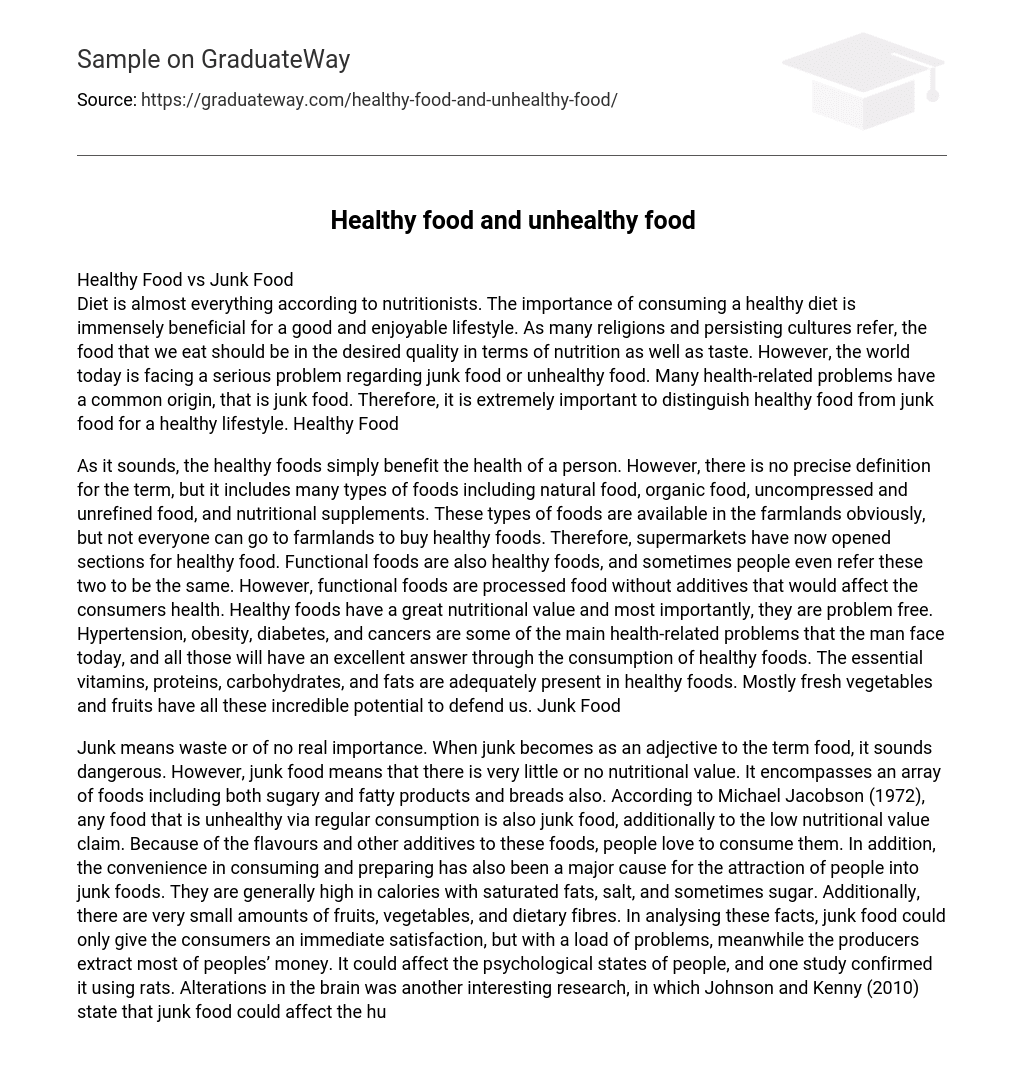Various religions and enduring cultures place a high emphasis on the importance of consuming nourishing and delicious food to maintain a fulfilling and enjoyable life. However, in today’s society, there is a significant problem with junk or unhealthy food that often leads to numerous health problems. Therefore, it is crucial to distinguish between healthy and junk food in order to preserve a healthy lifestyle.
The concept of “healthy foods” encompasses a range of food categories that promote good health, such as natural, organic, uncompressed, and unrefined options, along with nutritional supplements. Although these types of food are typically found in rural areas, accessibility can be an issue for many people. To tackle this challenge, supermarkets have started allocating dedicated sections to accommodate healthy food choices. Additionally, it is important to mention that functional foods are also regarded as healthy foods and the two terms are occasionally used interchangeably.
Functional foods are processed food without additives that can harm the consumer’s health. Healthy foods are nutritious and free from problems. Today, people face various health issues like hypertension, obesity, diabetes, and cancers. Consuming healthy foods provides an excellent solution to these problems. Healthy foods contain essential vitamins, proteins, carbohydrates, and fats. Fresh vegetables and fruits are particularly effective in defending our health.
Junk Food
When talking about food, junk refers to waste or something insignificant. However, when used as an adjective to describe food, junk implies that the food is hazardous. Junk food specifically lacks nutrition and consists of sugary and fatty products, along with breads. According to Michael Jacobson (1972), any consistently consumed unhealthy food is also categorized as junk food, regardless of its low nutritional value. The flavors and additives present in these foods are highly enticing to individuals.
The convenience and appeal of junk food have attracted many people, despite its high calorie, saturated fat, salt, and sometimes sugar content. These foods lack fruits, vegetables, and dietary fibers. Although they provide immediate satisfaction, junk food has several drawbacks. Producers greatly benefit from consumer purchases. Research with rats conducted by Johnson and Kenny (2010) confirms that junk food can negatively affect people’s psychological states in a similar manner to heroin and cocaine.





